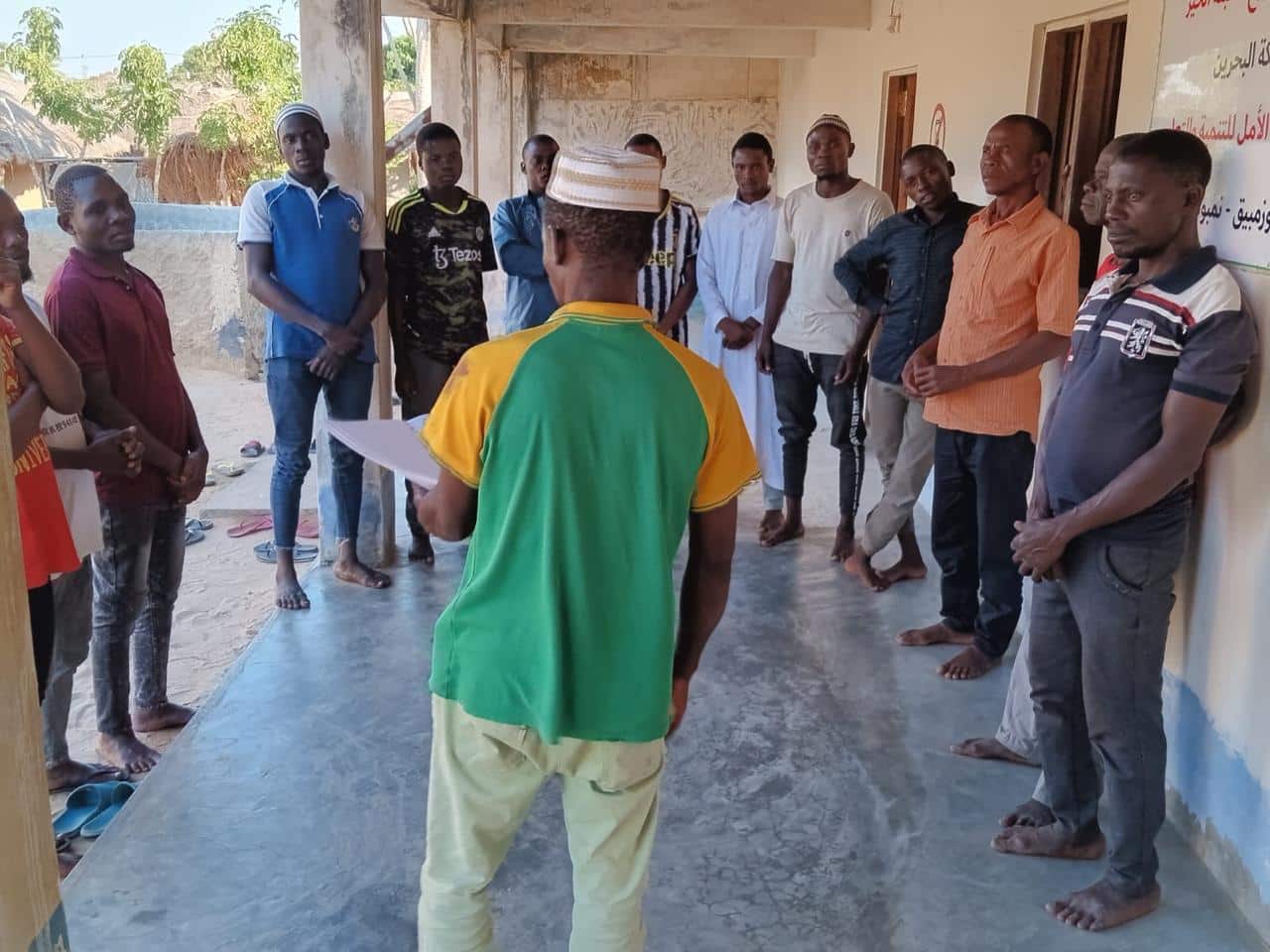Mozambican society is patriarchal. Men have the last word on nearly everything from what to spend money on to whether a pregnant wife can seek pre-natal care.
And even though women are charged with caring for the children and the home, they must wait for their husbands to give them permission to, say, take a child with a fever to a health clinic for treatment.
This lack of power sharing in couples is what led the Johns Hopkins Center for Communication Programs-led Fighting Malaria with Social and Behavior Change project to create Men’s Conversations Against Malaria, small discussion groups where men in three Mozambican provinces get together to learn about how malaria impacts their lives, families and communities – and how changing the gender dynamics in their homes could keep everyone safer from the disease.
“We’ve seen studies that show that there can be positive impacts on nutrition and family health when we have a situation of power sharing at the family level,” says CCP’s Edgar Bernardo, a gender and social and behavior change specialist working in Mozambique.
“Unfortunately, it still common in Mozambique, mainly in rural areas, to have men make decisions over everything. For example, when the man is not at home, women are not allowed to take children to hospital, so they have to wait for the man to come home and authorize them to go to hospital. And often men travel long distances for work so they’re not available to make critical decisions quickly.”
One key focus is on helping men understand how important it is – for malaria prevention, among many reasons – for them to support their pregnant wives and help them attend pre-natal care appointments. Those appointments are critical, says CCP’s Rob Ainslie, who leads the Mozambique team, to ensure that pregnant women get regular doses of intermittent preventive treatment of malaria during pregnancy (IPTp), a preventive antimalarial drug, given to at-risk pregnant women in their second and third trimesters.
Mozambique has the fourth highest death rate from malaria in Africa.
More than 6,000 men have participated in the conversations since the beginning of 2024 and the feedback has been positive. Bernardo says a key to the success is not just the education and awareness components of the process, but that men talk to their neighbors and friends and learn how they are incorporating some of the lessons in their daily lives.
Those who have successfully completed the conversations – three sessions, each fewer than two hours long – can model better malaria awareness behaviors in their communities.
In the province of Nampula, Bernardo says, men often repurpose insecticide-treated bed nets – meant to protect people from malaria-infected mosquitos – and use them for fishing nets. The dialogues explain that while the ability to be a provider is important, the family’s health is paramount.
Since he participated in a dialogue, Horácio Amade, who lives in the northern Mozambican community of Locone, says he has changed how he thinks about malaria prevention. He now ensures that nets are used for sleeping under, not for fishing, and that his family seeks proper medical care.
“In the past, when we had signs and symptoms of malaria, I did not go to the hospital, it was not common to take my children to the hospital, traditional treatments were the first option,” Amade says. “But now, through the sessions, my way of thinking has changed, I help and support my family to prevent and fight malaria. We sleep under mosquito nets and maintain hygiene in our home.”
Madalena Francisco, a mother in Locone, says she has noticed a real change in her husband after he attended the men’s dialogues.
“My husband is more participative in domestic issues now, including children’s health,” she says. “Last week, he took our son to the hospital, had him tested [for malaria] and monitored our child’s medication.”





